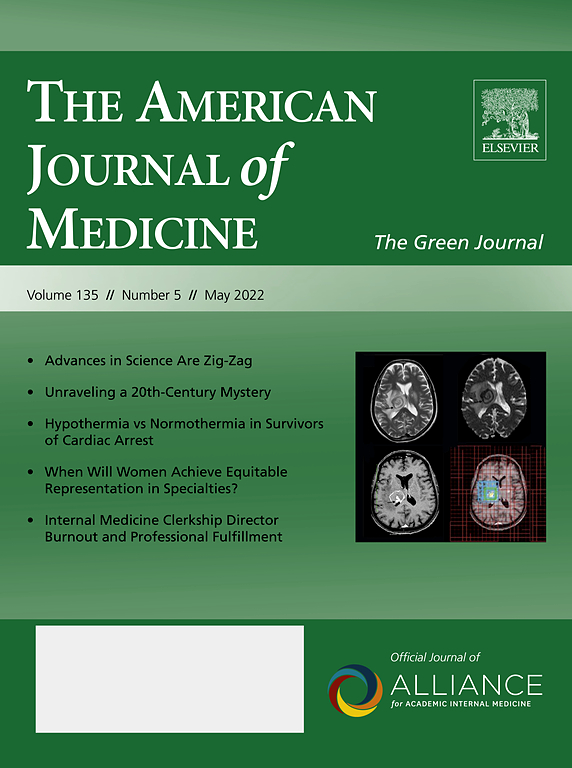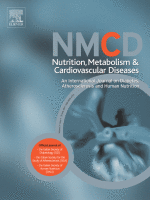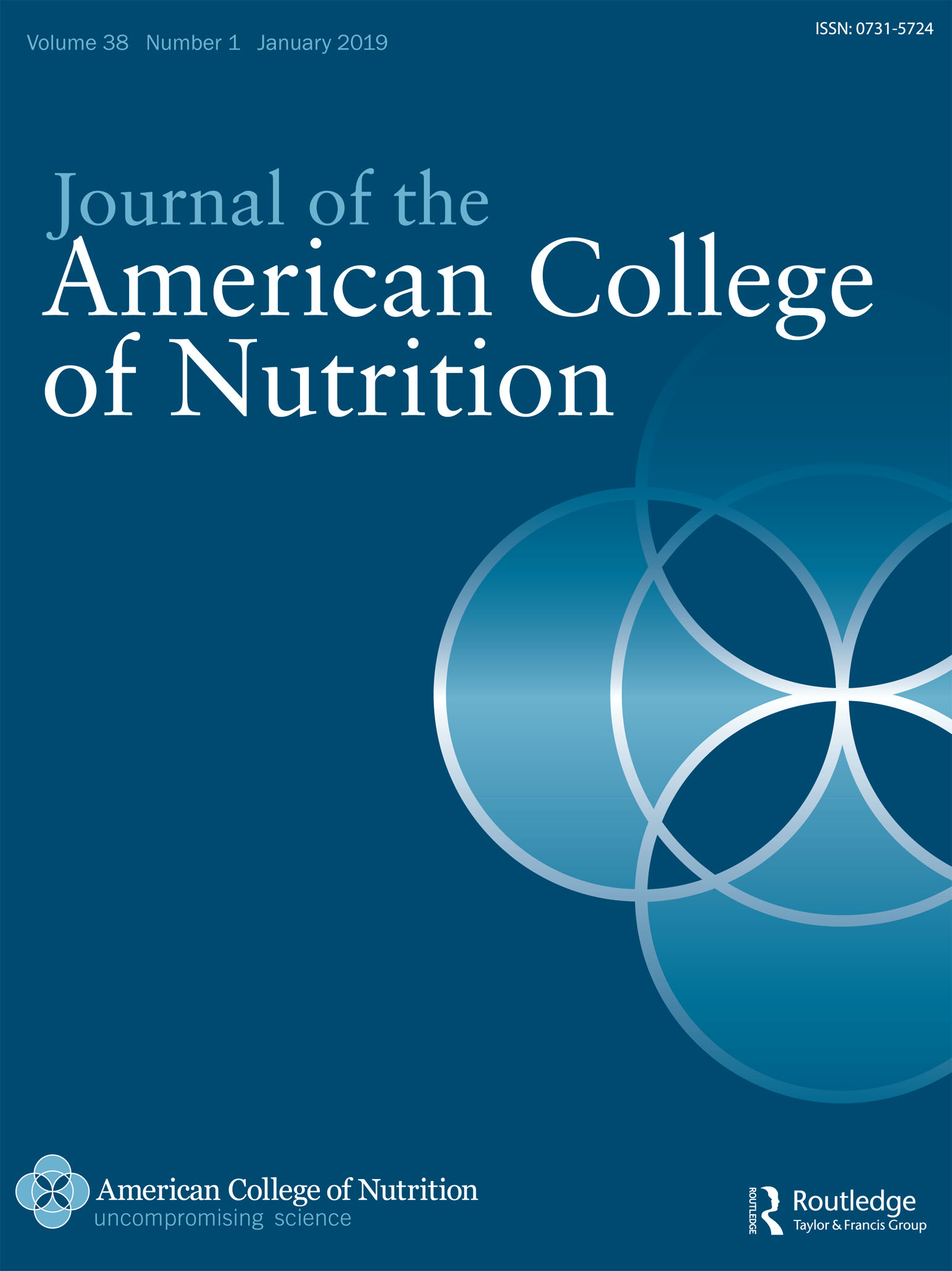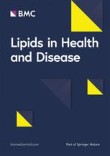Apolipoprotein B
How to submit an article:
- Registered users can submit any published journal article that has a unique DOI (Digital Object Identifier) name or link to Research Hub.
- For example, you can paste the full DOI link:
https://doi.org/10.1109/5.771073or just the DOI name:10.1109/5.771073into the field above and click submit. - The person who is first to submit a valid article to Research Hub will forever be credited for it, and every article submission earns you +6 Research Points.
Related Topics
Published research studies are articles that present the findings of original research that has undergone a peer-review process and has been made publicly available in scholarly journals, books or other media.

Impact of Coffee Consumption on Physiological Markers of Cardiovascular Risk: A Systematic Review
2021 May The American Journal of Medicine Daneschvar HL, Smetana GW, Brindamour L, Bain PA, Mukamal KJ
Systematic Review Coffee Cardiovascular DiseaseCoffee consumption, particularly boiled coffee, may increase levels of certain cardiovascular risk markers, but no strong link was found to anti-inflammatory effects.

The effects of Canola oil on cardiovascular risk factors: A systematic review and meta-analysis with dose-response analysis of controlled clinical trials
2020 Nov Nutrition, Metabolism and Cardiovascular Diseases Amiri M, Raeisi-Dehkordi H, Sarrafzadegan N, Forbes SC, Salehi-Abargouei A
Canola oil (CO) significantly reduced total cholesterol, low-density lipoprotein cholesterol (LDL-C), LDL-C to high-density lipoprotein cholesterol ratio (LDL/HDL), total cholesterol to HDL ratio (TC/HDL), apolipoprotein B (Apo B), and Apo B/Apo A-1 compared to other edible oils, including olive oil, sunflower oil, and saturated fats. Replacing CO with ~15% of total caloric intake provided the greatest benefits based on the nonlinear dose–response curve.
Systematic Review Meta-Analysis Canola Oil
Effects of Canola Oil Consumption on Lipid Profile: A Systematic Review and Meta-Analysis of Randomized Controlled Clinical Trials
2018 Oct 31 Journal of the American College of Nutrition Ghobadi S, Hassanzadeh-Rostami Z, Mohammadian F, Zare M, Faghih S
Canola oil (CO) consumption significantly reduced TC and LDL, with no significant effects on HDL, TG, Apo B, and Apo A1. Subgroup analyses indicated that the effects on TC and LDL were more pronounced in participants over 50 years of age and with an intervention duration of over 30 days. Additionally, CO showed a greater reduction in LDL and TC compared to sunflower oil and saturated fat. The meta-analysis suggests that CO consumption improves serum TC and LDL, potentially delaying the progression of heart disease.
Systematic Review Meta-Analysis
Omega-3 fatty acids eicosapentaenoic acid and docosahexaenoic acid and their mechanisms of action on apolipoprotein B-containing lipoproteins in humans: a review
2017 Aug 10 Lipids in Health and Disease Oscarsson J, Hurt-Camejo E
In humans, EPA and DHA reduce plasma TG levels to a similar extent via two main mechanisms: 1) by reducing hepatic production of VLDL lipoproteins; and 2) by increasing postprandial LPL activity.
Review Article Omega-3 Fatty Acids Apolipoprotein BResearch insights are moderated by the Research Hub team and offer an at-a-glance overview of interesting research findings.

2021 The American Journal of Medicine
Coffee consumption, particularly boiled coffee, may increase levels of certain cardiovascular risk markers, but no strong link was found to anti-inflammatory effects.
Systematic Review Cardiovascular Disease Coffee
Impact of Coffee Consumption on Physiological Markers of Cardiovascular Risk: A Systematic Review
Daneschvar HL, Smetana GW, Brindamour L, Bain PA, Mukamal KJ
Review Articles
Review articles summarise and critically evaluate the current state of research on a specific topic or field by synthesising multiple primary research studies.

Impact of Coffee Consumption on Physiological Markers of Cardiovascular Risk: A Systematic Review
2021 May The American Journal of Medicine Daneschvar HL, Smetana GW, Brindamour L, Bain PA, Mukamal KJ
Systematic Review Coffee Cardiovascular DiseaseCoffee consumption, particularly boiled coffee, may increase levels of certain cardiovascular risk markers, but no strong link was found to anti-inflammatory effects.

The effects of Canola oil on cardiovascular risk factors: A systematic review and meta-analysis with dose-response analysis of controlled clinical trials
2020 Nov Nutrition, Metabolism and Cardiovascular Diseases Amiri M, Raeisi-Dehkordi H, Sarrafzadegan N, Forbes SC, Salehi-Abargouei A
Canola oil (CO) significantly reduced total cholesterol, low-density lipoprotein cholesterol (LDL-C), LDL-C to high-density lipoprotein cholesterol ratio (LDL/HDL), total cholesterol to HDL ratio (TC/HDL), apolipoprotein B (Apo B), and Apo B/Apo A-1 compared to other edible oils, including olive oil, sunflower oil, and saturated fats. Replacing CO with ~15% of total caloric intake provided the greatest benefits based on the nonlinear dose–response curve.
Systematic Review Meta-Analysis Canola Oil
Effects of Canola Oil Consumption on Lipid Profile: A Systematic Review and Meta-Analysis of Randomized Controlled Clinical Trials
2018 Oct 31 Journal of the American College of Nutrition Ghobadi S, Hassanzadeh-Rostami Z, Mohammadian F, Zare M, Faghih S
Canola oil (CO) consumption significantly reduced TC and LDL, with no significant effects on HDL, TG, Apo B, and Apo A1. Subgroup analyses indicated that the effects on TC and LDL were more pronounced in participants over 50 years of age and with an intervention duration of over 30 days. Additionally, CO showed a greater reduction in LDL and TC compared to sunflower oil and saturated fat. The meta-analysis suggests that CO consumption improves serum TC and LDL, potentially delaying the progression of heart disease.
Systematic Review Meta-Analysis
Omega-3 fatty acids eicosapentaenoic acid and docosahexaenoic acid and their mechanisms of action on apolipoprotein B-containing lipoproteins in humans: a review
2017 Aug 10 Lipids in Health and Disease Oscarsson J, Hurt-Camejo E
In humans, EPA and DHA reduce plasma TG levels to a similar extent via two main mechanisms: 1) by reducing hepatic production of VLDL lipoproteins; and 2) by increasing postprandial LPL activity.
Review Article Omega-3 Fatty Acids Apolipoprotein BClinical Trials
Clinical trials are research studies that involve people and are conducted to evaluate the safety and efficacy of new treatments or interventions, such as drugs, medical devices, or behavioural therapies.
Study Protocols
Published study protocols are detailed plans that outline the objectives, methodology, statistical analyses, and organisation of a research study that have been made publicly available for others to review and use as a reference.
Presentation Slides

Systematic Review
Coffee consumption, particularly boiled coffee, may increase levels of certain cardiovascular risk markers, but no strong link was found to anti-inflammatory effects.
Daneschvar HL, Smetana GW, Brindamour L, Bain PA, Mukamal KJ
Executive Summary
Write an executive summary in the form of a blog article on the topic of "Research into Chinese medicine treatment for Apolipoprotein B" summarising the research below and using language that can be easily understood by patients and avoiding medical jargon using a professional and caring tone of voice.
Write an executive summary in the form of a blog article on the topic of "Researched Chinese medicine treatments for Apolipoprotein B" summarising the research below in an objective and easy to understand way, and using language that can be easily understood by patients. Group the article into Chinese medicine treatments first, followed by nutrition and other treatments. Avoid using medical jargon and use a professional and caring tone of voice.
Write me a concise but easy to understand executive summary on the topic of "Chinese medicine treatments for Apolipoprotein B" based on the following research that I will give you. Your summary should be 2 paragraphs long in Australian English spelling and include references to the studies.
A Systematic Review published in 2021 in the journal The American Journal of Medicine found that Coffee consumption, particularly boiled coffee, may increase levels of certain cardiovascular risk markers, but no strong link was found to anti-inflammatory effects. Methodically considering pre-selected databases such as PubMed, Embase, CINAHL and more, this study rigorously searched for randomized controlled trials to analyse the impacts of coffee consumption on inflammatory indicators of cardiovascular risk. Duplicate data and trials that did not meet the study's criteria were removed. The remaining 17 studies that passed scrutiny were included in the analysis, looking particularly at effects of coffee on cholesterol levels, apolipoprotein B levels and interleukin 6 levels. This comprehensive review resulted in interesting findings. Boiled coffee emerged as a potential culprit for increased levels of total and low-density lipoprotein cholesterol along with apolipoprotein B. Filtered coffee, on the other hand, did not show similar trends. In one trial, caffeinated coffee showed a noteworthy increase in blood interleukin 6 levels compared to participants who did not consume coffee. However, no robust anti-inflammatory effects connected to coffee consumption could be confidently ascertained to be a significant factor in reducing mortality rates related to cardiovascular disease.
Moderation Tools
Topic
Sign In
Users not signed in are limited to viewing the 5 most recent items of content.